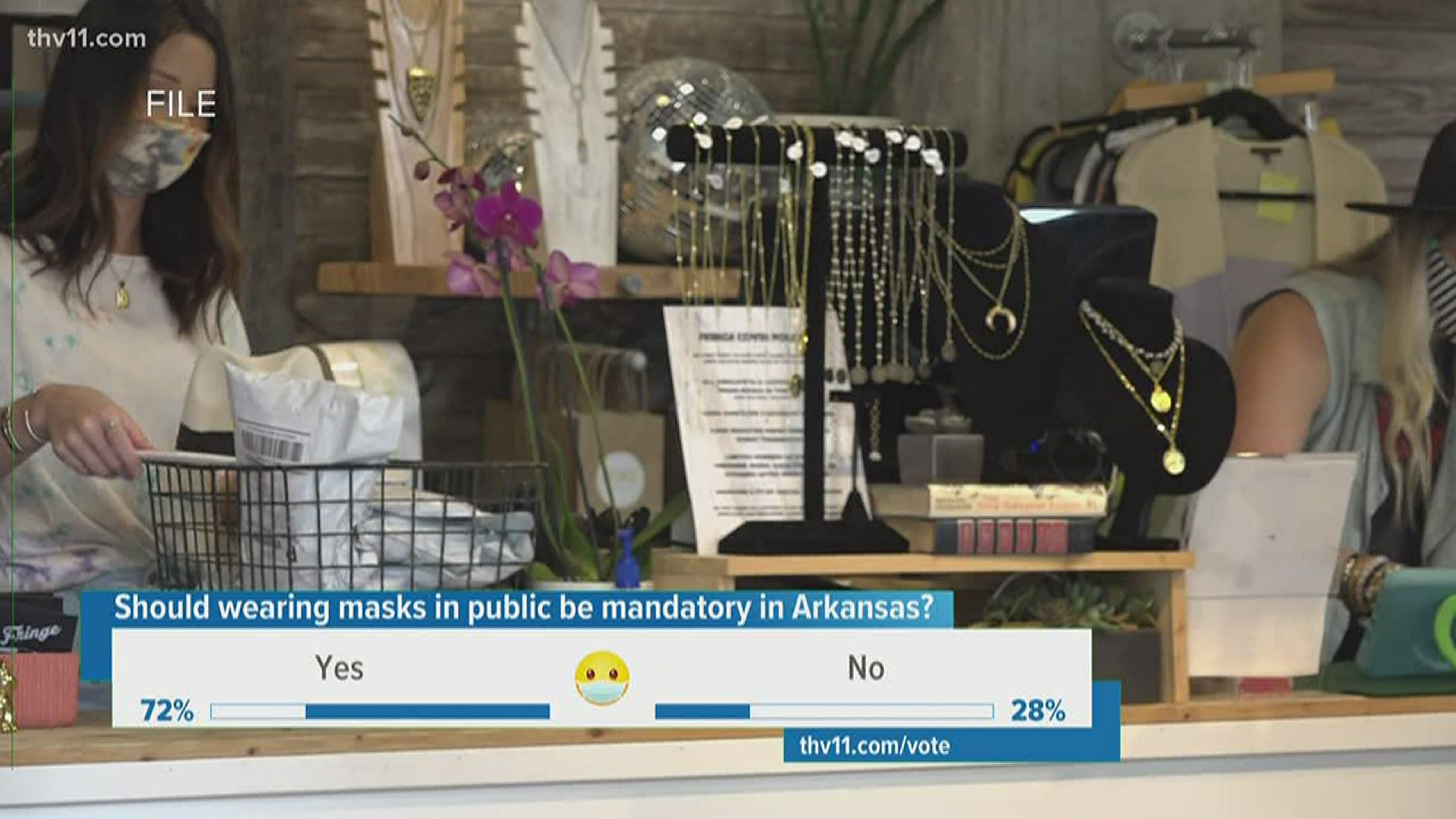LITTLE ROCK, Ark — While government officials differ on mask enforcement, a psychologist says there’s a lot more to it than issuing guidelines.
Wearing a mask continues to be debated by government officials across the nation, and by people in Arkansas.
As COVID-19 cases continue to rise, Little Rock Mayor Frank Scott Jr. announced he’s looking to sign an executive order requiring face masks to be worn in public within city limits.
“The city of Little Rock has seen some drops, but we're still at the top. We understand there's a chance for a surge between now and September. We want to be proactive, not reactive,” Scott said.
The initiative is called the Keep Covered and Keep Your Distance Campaign.
Meanwhile, Governor Asa Hutchinson continues to stand firm in hoping the community will make the right choice.
“We have some very strong guidelines that we’ve set— whether it’s indoor venues or outdoor venues,” Hutchinson said.
Fayetteville recently passed an ordinance making masks required at businesses, a decision Hutchinson isn’t on board with.
“I would prefer that cities would not take that step simply because we want to make sure that we educate people, that they exercise self-discipline,” Hutchinson said.
While governing officials have different perspectives on mask use, a psychologist said whether people wear them starts in the mind.
“More often people are just more responsive to what they see other people doing,” UCA Assistant Professor of Psychology Marc Sestir said.
Most people will do what is the norm; and politics have become a part of the decision-making process.
Sestir said masks caused division.
“If you do a little reading on the Influenza Pandemic of about 1918 there was a lot of pressure to wear masks, people resisted that. There were anti-mask leagues going on,” Sestir said.
He said another problem is called the Paradox of Prevention.
“The more effective you are at preventing a bad thing from happening, the more it looks like the prevention was never necessary,” Sestir said.

